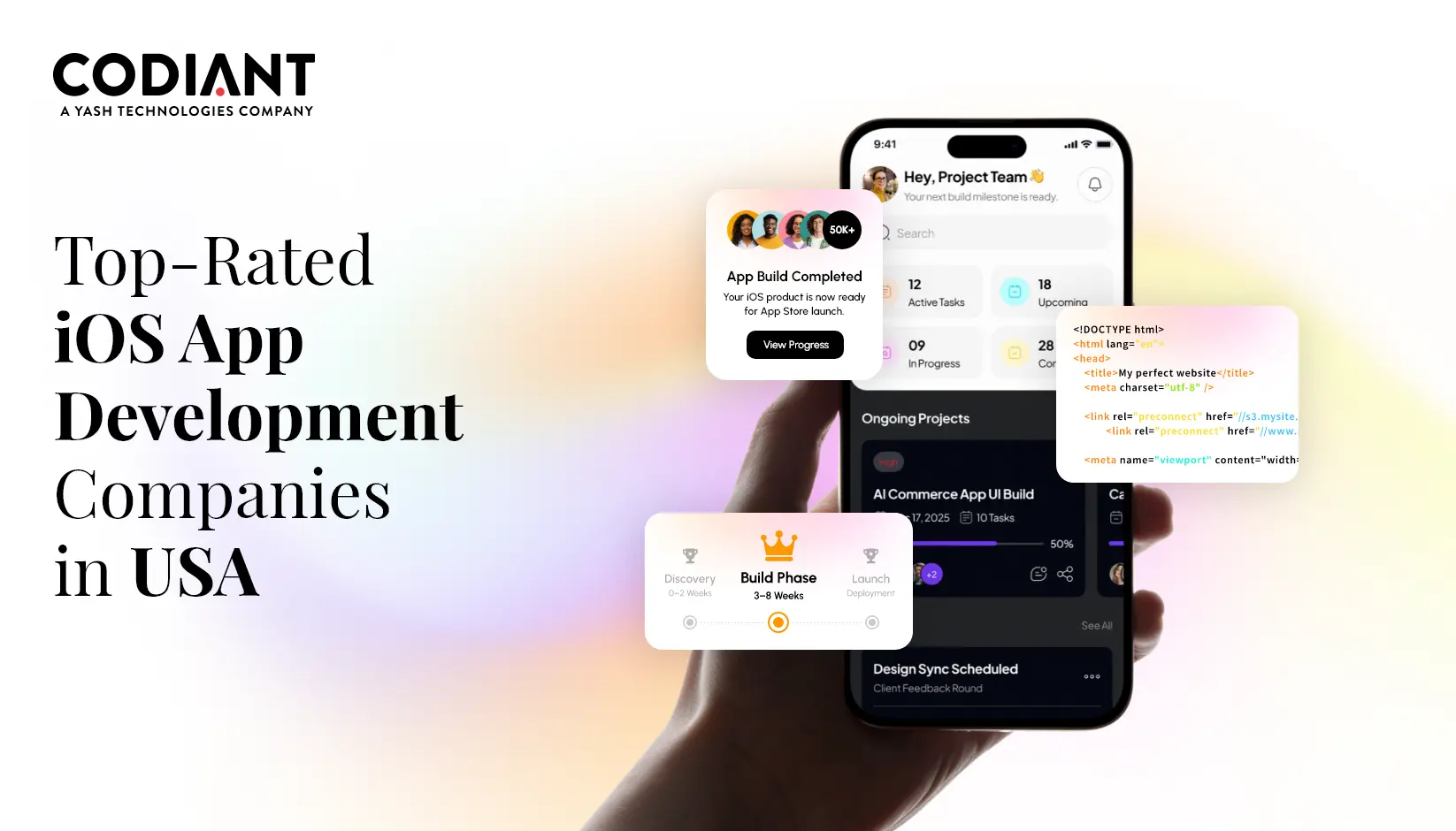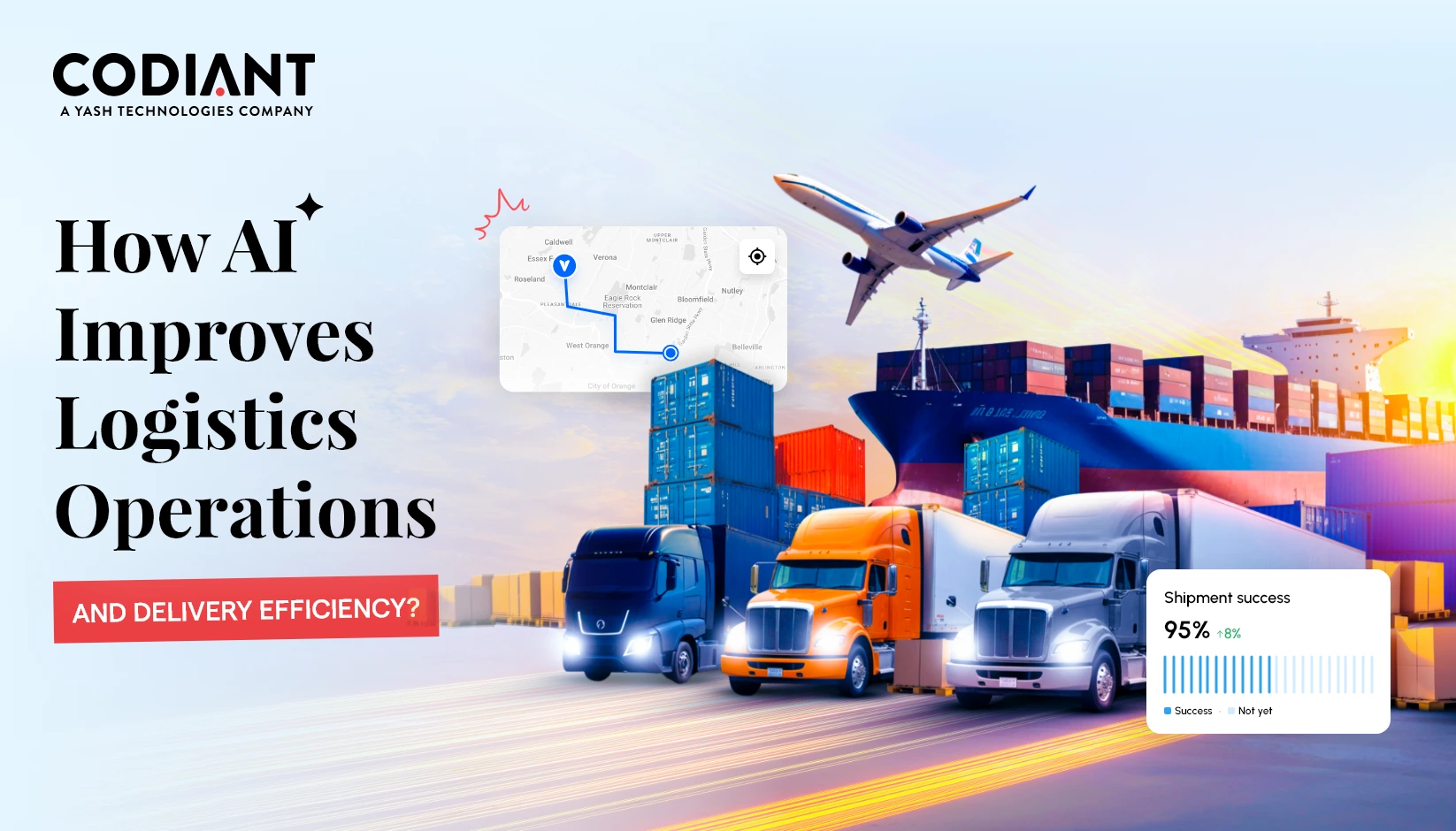IoT in Automotive Industry, Benefits, Applications & its Future
Table of Contents
Subscribe To Our Newsletter

Automobile companies are leveraging the potential of IoT in automotive (Internet of Things) to excel in the competitive market. Automotive IoT means incorporating IoT technology into automotive systems to create advanced solutions and apps. Technically, it refers to the integration of internet-connected devices, gadgets, sensors, and other similar components into motor vehicles.
Automotive IoT aims to enhance a vehicle’s functionality, performance, management capabilities, security, insurance, efficiency, driving experience, and much more. The primary goal of automotive IoT is to form intelligent, advanced, and efficient transportation systems by providing various benefits.
IoT for the automotive industry has been ground-breaking and has changed the automotive sector immensely. According to the report from Statista, the money invested in the automotive industry will reach 740 billion USD by 2025. you can also dig deeper into what is IoT and its benefits for better understanding and applications.
So, in the next 7 minutes, let’s discuss the benefits, real examples, and applications of IoT in the automotive industry.

Staggering Benefits of Automotive IoT
IoT has transformed the automotive industry with its staggering and tremendous benefits for manufacturers and customers alike.
1. Vehicle Connectivity
When it comes to technical advancements, communication between vehicles is one of the most remarkable benefits of IoT in Automotive industry i.e cars. Connecting smart cars and other transport systems with each other by integrating sensors, enables vehicle-to-vehicle interaction.
This enables information sharing like live location, speed, route, etc. all in real-time via dedicated short-range communication. Also reduces the chances of accidents, manages the flow of traffic, and prevents possibilities of collision.
2. Increased Safety
IoT holds the power to change the way of driving for people. IoT-based sensors in IoT cars increase the safety of drivers. This sensor keeps track of the traffic patterns and weather conditions suitable for safe driving.
To tackle accidents resulting from human errors IoT cars help in solving this issue. By analysing driver’s behaviour, habits, and health status in real-time IoT can help to reduce the chances of casualty.
3. Smart Infrastructure
Vehicle infrastructure plays a vital role in the automobile industry. Therefore, with IoT applications in the automotive industry, drivers can access a better, smarter, and tech-advanced infrastructure. Additionally, drivers get enhanced driving experience, improved road safety, easy parking management, and less chances of accidents.
4. Predictive Maintenance
Predictive maintenance in automotive IoT helps to monitor the status of cars and its connected devices. For instance, previously it was a hefty task for a customer to understand and take his vehicle for servicing and oil bearing. But with automotive IoT, customers can monitor the system status anytime, and accordingly determine when to take the vehicle for servicing.
IoT cars, enable information collection of vehicles like performance and risk of malfunctioning, etc., and notify customers about maintenance.
5. Improved Engineering
IoT for automotive industry helps manufacturers in data collection based on the usage of vehicles. After understanding which functions and systems drivers use the most, manufacturers modify and update the design.
Manufacturers might change the old or unwanted model with new and better functions. And help to offer more personalized services to drivers such as improved maintenance and technical support.
6. Integrating Smartphones in Cars
By bridging the gap between vehicles and smartphones, manufacturers are building advanced technology operating systems. Customers can connect their phones with IoT cars and enjoy data sharing, app downloading, data exchanging, Wi-fi connectivity and more.
IoT Applications in the Automotive Industry

IoT applications in the automotive industry have unveiled a number of opportunities and transformed the industry with improved quality at lesser cost. Here are some of the IoT applications in the automotive industry:
1. Fleet Management
Recently, automotive IoT in fleet management has brought a drastic change. Today vehicles are infused with weight or volume tracking, fuel & mileage performance, live location monitoring, and route, and traffic management. These fleet management systems in automotive IoT improve the vehicle’s efficiency and reduce costs.
2. Autonomous Vehicles
What we imagined as a fully driverless vehicle is still a vision. However, semi-autonomous vehicles integrated with IoT and AI technology in automotive are coming into reality. These IoT cars are making decisions on the spot while controlling other vehicle operations partly.
3. Vehicle telematics
Vehicle telematics allows customers to monitor the movement, status, development, and location of a vehicle inside a fleet. Once IoT and telematics combine, vehicles can be advanced with availability and equipment permitting to communicate with other smart gadgets. By using vehicle telematics customers can even monitor their vehicles remotely.
4. Advanced Driver Assistance System (ADAS)
ADAS is the active safety system integrated into IoT cars to enable drivers to take timely control of vehicles. This will help drivers to alert them reducing the chances of accidents on roads. ADAS system quickly scans the surroundings of vehicles, and provides drivers assistance for a safe and comfortable driving experience.
5. In-Vehicle Infotainment
In the era of smart and advanced cars who doesn’t want entertainment? Operating systems offered in IoT-powered vehicles enable passengers to watch/stream movies, play games, and enjoy songs.
The IoT-enabled in-vehicle infotainment system provides drivers a source of entertainment throughout their journey. It also allows drivers with services such as hands-free calling, voice assistance, and live navigation when connected to the internet.
Future of IoT in the Automotive Industry in 2023 & Beyond
IoT in the automotive industry is still a new concept and gaining momentum. There’s no wonder that in forthcoming years automotive industry will evolve immensely with the integration of IoT technology into vehicles.
There are various gigantic automobile companies who adopted IoT technologies in their vehicles to change the way of driving. Tesla, BMW, Ford, Audi, and Mercedes-Benz are a few sharks of the automobile market that launched fully autonomous vehicles.
The sensors in IoT cars help to collect data based on the driver’s likes, dislikes, seating positions, temperature settings, etc. This helps manufacturers to upgrade and provide drivers with a personalized, more comforting, and extensive driving experience.
Undoubtedly, the automotive IoT manufacturing sector is shifting to advanced and modular systems. This paradigm shift will ensure improved efficiency, smoother travel, less environmental damage, empowering sustainability, and elevated driving experiences.
Read More: How to Build a Logistics and Transportation App Like Aramex?
Real-life examples of Automotive IoT
Automotive companies are increasingly leveraging the potential of IoT technology to improve their customers driving experiences. They are providing enhanced driving experience, vehicle performance, improved security for drivers and at the same time optimizing the complete manufacturing process.
BMW
One of the top automotive companies BMW used IoT to enhance its vehicle’s connectivity through ConnectedDrive service with IFTTT (If This Then That). BMW has taken advantage of IoT to its best, from maintenance to management, and inventory optimization to operational efficiency.
BMW is the first to bring innovative connected vehicle technology features like Here maps to provide live traffic information.
Ford
Ford leveraged IoT technology to improve its vehicle’s quality. Its factories have IoT sensors to track every step of the production processes like inventory, production, and machinery.
This giant company is utilizing IoT solutions to create autonomous cars for the past ten years. Its features like GoDrive, and GoPark direct users with parking spaces and FordPass allows to connect cars, and enables remote locking, and sharing.
Tesla
A well-known motor company, Tesla Motors is a game changer in the field of electric vehicle manufacturing industries. They have grasped the power of IoT sensors in their cars and vehicles. These sensors collect data like driver’s behavioral patterns, vehicle performance, and battery status. This information is later on passed to Tesla’s server, where IT experts solve the issues before it get serious.
Audi
Audi integrates the Traffic Light Information (TLI) system step in improving vehicle-to-everything (V2X) communication. This enables drivers to understand the traffic conditions, and based on that they can easily direct their route, reducing their stress levels.
The Bottom Line
IoT for the automotive industry is advancing with each passing day, making a huge impact on the entire car world. These days people want cars that are easier to control and interact with functions like self-driving, pre-optimization, and more secure.
As IoT innovations continue to evolve, the way we manage and interact with vehicles is undergoing a major transformation. From smart parking solutions to real-time road hazard detection, IoT technology is making transportation safer and more efficient. These advanced solutions are also optimizing transportation & logistics operations, helping businesses and drivers reduce risks, save time, and enhance overall efficiency on the road.
Today, car buyers look at cars as more than a mode of transport, they want smart vehicles with the latest innovations. Thereby, IoT applications in the automotive industry are striving to cater to buyer’s needs and expectations with advanced IoT solutions.
How Codiant Can Help You Leverage IoT in Automotive?
There’s not much time left when autonomous vehicles will ride in the front seat of the automotive industry. For that reason, various motor industry enterprises and start-ups are shifting to evolve their IoT approach. Codiant can help you leverage the technology with its advanced 5G, AI, and IoT technology for automobiles to grow exponentially.
Connect with our experienced team of expert IoT engineers to help you with innovative and effective solutions. They can deploy your automotive IoT development project successfully and can accelerate your transformation journey digitally.
Apart from being one of the best IoT development companies, we create robust IoT solutions to cater to our clients globally. We are also proficient in developing breakthrough IoT solutions in retail, healthcare, manufacturing, etc. industries.
Frequently Asked Questions
IoT in cars means they can talk to the internet. This lets them do interesting things like find out traffic info in real-time, check how they’re doing from far away, and maybe even drive themselves. So basically, IoT makes vehicles smarter and more efficient.
IoT brings a convoy of benefits to the automotive table. Firstly, it enhances safety by enabling real-time communication between vehicles, and reducing accidents. Secondly, it improves efficiency through smart traffic management, saving time and fuel. Lastly, IoT transforms our driving experience, offering features like predictive maintenance and personalized services.
Cars are getting smarter with a variety of IoT devices. Think of GPS navigation systems, which guide us seamlessly. Then there are sensors monitoring tire pressure and engine health. Don’t forget about smart entertainment systems, turning your car into a hub of connectivity. These devices collectively form the IoT ecosystem in cars.
IoT is revolutionizing the automotive industry on multiple fronts. It’s injecting intelligence into vehicles, making them safer and more efficient. With real-time data exchange, IoT is streamlining maintenance processes and reducing downtime. The automotive landscape is shifting gears, and IoT is steering the wheel of change.
Featured Blogs
Read our thoughts and insights on the latest tech and business trends
Top iPhone App Development Companies in USA in 2026
- February 18, 2026
- Mobile App Development
In a Nutshell The USA remains one of the strongest hubs for premium iPhone app development in 2026, especially for fintech, healthcare, retail, and SaaS brands. Choosing the right iOS partner goes beyond portfolios; the... Read more
How to Choose the Right AI Development Partner in the USA (Enterprise Guide 2026)
- February 12, 2026
- Artificial Intelligence
In a Nutshell Enterprise AI success starts with clear business goals, not vague plans like “we need AI.” The best AI development partners deliver real production systems, not just impressive demos or prototypes. Industry alignment... Read more
How AI Is Transforming Transport & Logistics Operations in Real Time
- February 10, 2026
- Artificial Intelligence Logistics & Transportation
In a Nutshell: AI in transport & logistics is enabling faster, smarter decision-making across fleets, warehouses, and supply chains. Real-time logistics optimization improves route planning, dispatching, and delivery efficiency as conditions change. AI-driven forecasting and... Read more





